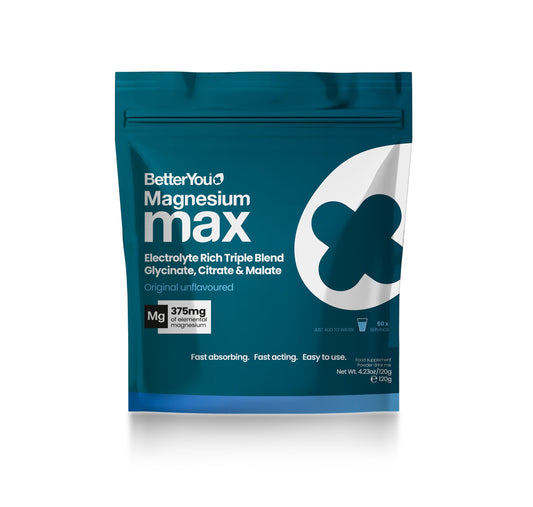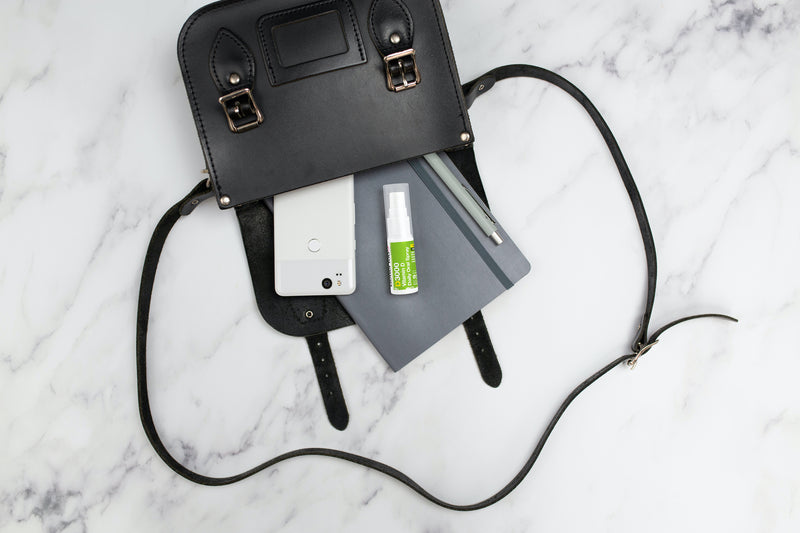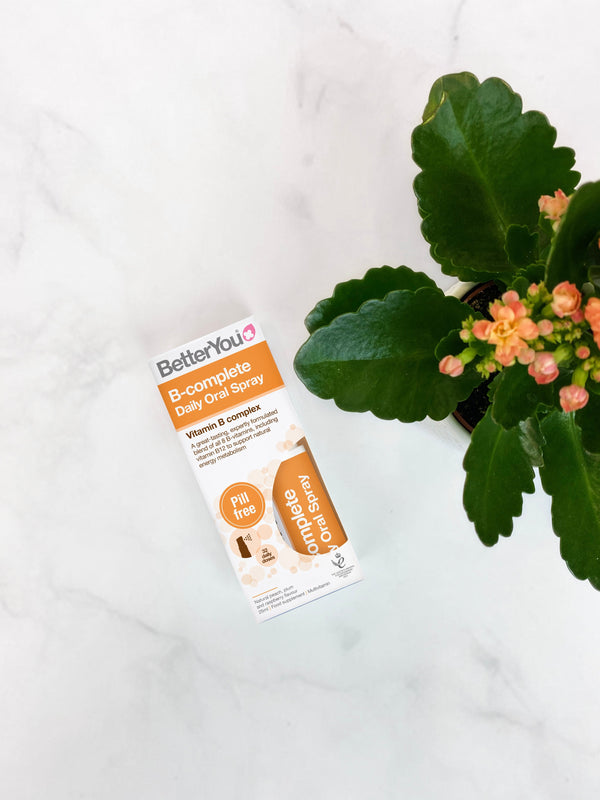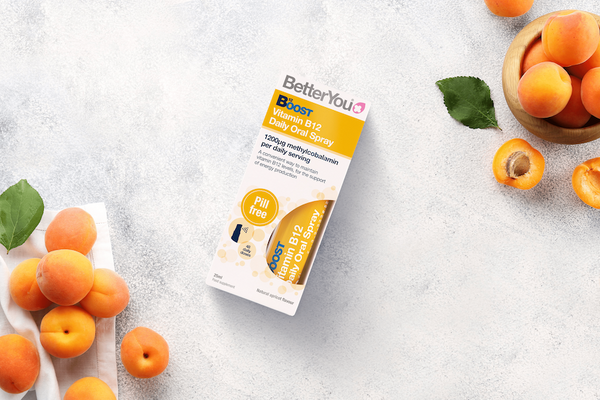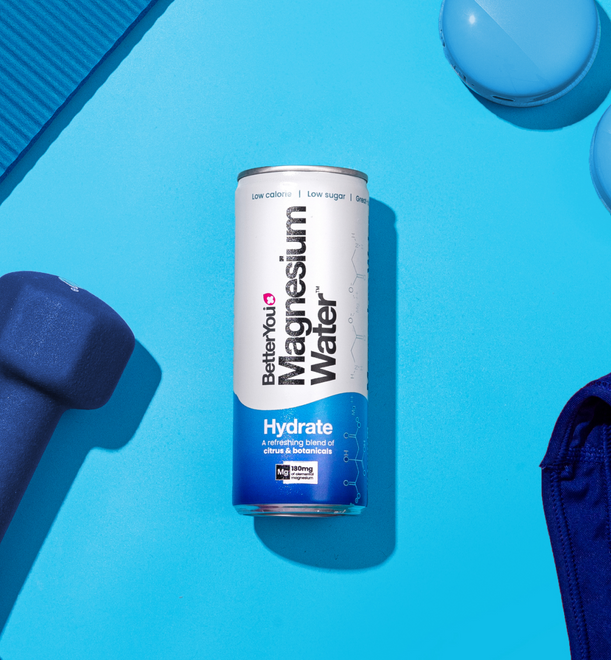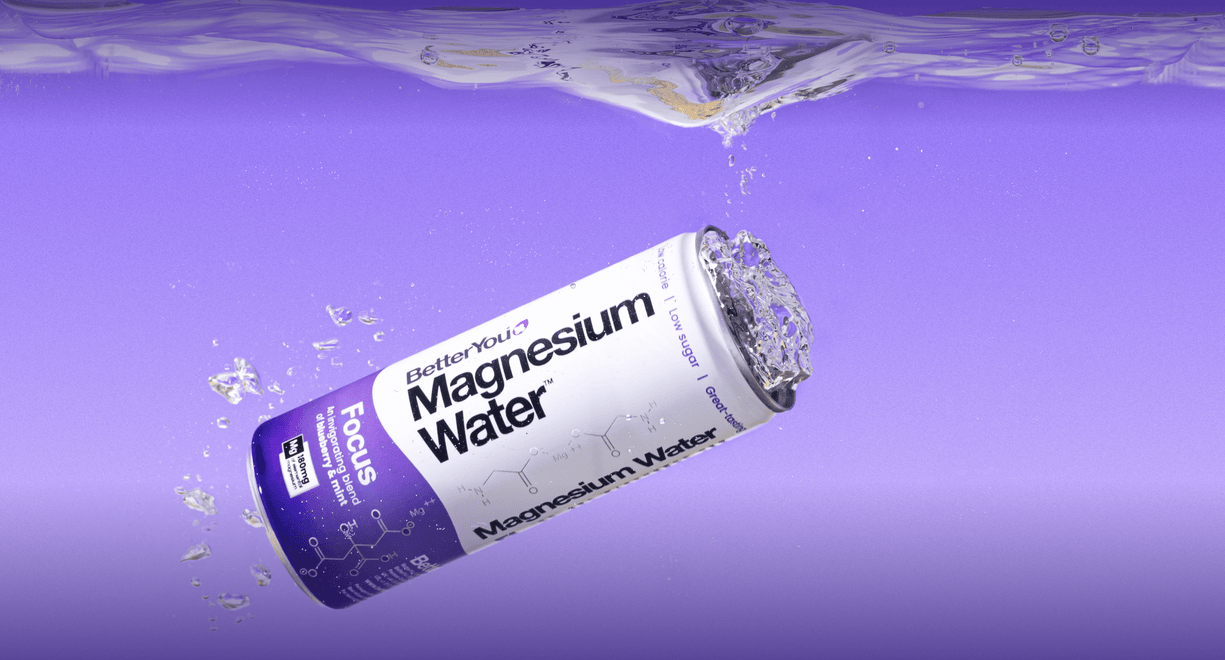Vitamin D deficiency occurs when your body does not have enough of the sunshine vitamin. Vitamin D is one of the vitamins your body needs to work as it should. A lack can cause serious health problems if ignored. There are detrimental signs and symptoms which occur when you don’t get enough vitamin D. Here’s what you need to know about vitamin D deficiency, and how to increase your vitamin D intake.
Table of Contents:
- What Is Vitamin D Deficiency?
- 5 Signs & Symptoms of Vitamin D Deficiency
- What Causes Vitamin D Deficiency?
- How Much Per Day?
- Are You At Risk of Low Levels?
- How to Test for Vitamin D Deficiency
- Increase Vitamin D Intake with BetterYou
- What Happens If You Take Too Much?
- 5 Sources of Vitamin D
What Is Vitamin D Deficiency?
Deficiency means a lack or shortage of something. So if you have vitamin D deficiency, it means you aren’t getting enough vitamin D, also known as calciferol. Identifying if you could have vitamin D deficiency can help you spot any possible health problems, and help to prevent them.
The National Institute for Health and Care Excellence (NICE) estimates that vitamin D deficiency in the UK affects one in five adults and one in six children – that’s 10 million of us!
Vitamin D deficiency, if left untreated, could lead to bone problems such as rickets in children or even osteomalacia in adults. This is why it is important to spot the signs of vitamin D deficiency early and consider taking vitamin D supplements to support bone and immune health, and help achieve optimal daily vitamin D levels .
5 Signs & Symptoms of Vitamin D Deficiency
Spotting vitamin D deficiency is important to ensure your body is getting what it needs, and at the right levels, to function properly. Some signs you’re not getting enough vitamin D are more easy to spot than others. We’ve created a list of what to look out for to avoid these detrimental problems to your health.
- Constant Coughs and Colds - Vitamin D is important for your immune system, and vitamin D deficiency may mean your immune defences do not react properly when you come into contact with a cold. Include vitamin D as part of an immune system supplement plan.
- Aching Bones - Vitamin D is a bone supplement which works to support you by regulating calcium levels within the body. It does this in partnership with vitamin K. If you want to increase your vitamin D intake, also taking vitamin K supplements could help support bone function. If you aren’t getting enough vitamin D your joints can weaken and you could be more at risk of stress fractures. If your bones are aching, it may be due to a vitamin D deficiency.
- Gut Problems - Vitamin D is a fat-soluble nutrient and so it is affected by any gastrointestinal conditions, such as IBS, which affect your body’s ability to adsorb fat. If this occurs, you may be at a greater risk of vitamin D deficiency.
- Weak Muscles - Vitamin D is needed for normal muscle function. If your muscles are feeling weak, they may be losing strength due to vitamin D deficiency. This can be more common in older people because elderly people’s skin cannot make vitamin D as well as when they were younger.
- Feeling Low - Serotonin levels in the brain can be affected by vitamin D deficiency. Serotonin is known as the happy hormone because it is important in keeping your moods up and you feeling your best. A low mood, especially in winter, could be a sign of vitamin D deficiency.
Identifying these signs of vitamin D deficiency can help you know if you should take supplements to improve your vitamin D levels.
What Causes Vitamin D Deficiency?
There is no one singular cause of vitamin D deficiency. Vitamin D can be absorbed naturally by the sun, hence its nickname as the “sunshine vitamin”. Vitamin D can also be provided naturally through your diet. Therefore, there are many reasons why you would not get enough vitamin D and be at risk of vitamin D deficiency.
The cause of vitamin D deficiency is a lack of the vitamin in diet or through supplements, which causes the health concerns which appear during a vitamin or mineral deficiency.
How Much Per Day?
According to the NHS, the dosage of vitamin D you need each day is 10μg or 400 IU for adults. The safe upper limit for vitamin D is 100μg (4,000 IU) a day.
Are You At Risk of Low Levels?
Certain groups of people may be more at risk of low levels of vitamin D. Those at a higher risk of vitamin D deficiency include:
- Pregnant and breastfeeding - Those pregnant or breastfeeding may be at risk of vitamin D deficiency because not only is vitamin D helpful in conception, but it also helps to support a healthy full-term pregnancy. Including vitamin D in your pregnancy supplements can help infant growth and development, so it is important for those breastfeeding too.
- Children under 5 - Vitamin D is important for children’s development of bones and muscles. Any child could be at risk of developing rickets if they do not get enough vitamin D from sunlight or their diet. Children younger than 5 are more at risk of low calcium blood levels if they have vitamin D deficiency and could consider taking children’s vitamins to help healthy development.
- Vegetarians & Vegans - People who avoid meat and other animal products in their diet may be more susceptible to vitamin D deficiency. Dietary requirements may affect ability to obtain adequate vitamin D from food sources. Vegetarians and vegans may consider taking vitamin D supplements to ensure they’re getting adequate amounts, and are not at risk of vitamin D deficiency. Vegan supplements help to provide the supplements that vegans should take. Whilst vegetarian supplements aim to bridge the gap of supplements vegetarians should take. Those with dietary restrictions may consider these to help their body get the boost of nutrients they need.
- People with no/low sun exposure - Many people do not get enough sun exposure. This may be because they work indoors or do not live in a climate with enough sun exposure. In the UK, UVB rays aren’t strong enough between November and March for vitamin D production. This means that for large parts of the year, vitamin D production from the sun isn’t impossible, leading to increased risk of vitamin D deficiency.
- Those with darker skin - Those with higher levels of melanin in their skin may be at higher risk of developing vitamin D deficiency. This is because the melanin in the skin acts as a natural barrier to UVB rays. This means less UVB enters the skin and the body produces less vitamin D.
- People aged 65 and over - For those over the age of 65 there is a higher risk of vitamin D deficiency. The body finds it harder to make vitamin D as you age. Vitamin D deficiency in older people can lead to a loss in mobility and could add to symptoms of osteoporosis, and increase the risk of falls and fragility fractures.
The people on this list could be at risk of developing vitamin D deficiency. Always seek medical advice from your GP if you think you may be at risk of vitamin D deficiency and before taking supplements.
Increase Vitamin D Intake with BetterYou
The BetterYou range of Vitamin D Oral Sprays have been specially formulated to deliver vitamin D directly into the mouth. The mouth is an excellent receptor for supplements because of its soft, absorbent tissue and because it is so close to the body’s vein system.
BetterYou’s award-winning range of Vitamin D Supplements are available in a number of dosage strengths for the whole family, and different at-risk groups. Our oral Sprays are a pioneering and convenient solution to traditional vitamin D supplementation.
Conveniently deliver essential nutrients using oral sprays with 100% natural flavouring, designed to support vitamin D absorption and help lower the risk of vitamin D deficiency.
How to Test for Vitamin D Deficiency
If you think you are showing any of these detrimental signs of a vitamin D deficiency, you should learn how to test your vitamin D levels. BetterYou make it straightforward to test your levels, and identify if you are suffering from vitamin D deficiency:
- Order your vitamin D test online.
- Once it’s arrived you’ll place four blood spots on the collection card - using a simple prick of the finger.
- Use the prepaid envelope to send to City Assays - they analyse the sample for Sandwell and West Birmingham trust.
- Within 10 working days of the lab receiving your sample you’ll have your results via email.
- After your results have been sent we’ll provide you with a bespoke supplementation plan to help you increase or maintain your vitamin D.
You’ll also receive a complimentary Vitamin D spray upon completion. BetterYou health test kits can all be done from the comfort of your own home. This means you can avoid the health concerns of vitamin D deficiency as much as possible.
What Happens If You Take Too Much?
It is possible to go in the opposite direction of vitamin D deficiency. If you take too much vitamin D, you are also at risk of health problems that come with overdosing the “sunshine” vitamin.
Too much vitamin D is also known as vitamin D toxicity. When this happens, there may be a buildup of calcium in the blood, because vitamin D helps your body absorb this mineral. Too much calcium in the blood is known as hypercalcemia. This can cause nausea and vomiting, and leave you feeling weak. If your levels remain too high, you may experience bone pain and kidney problems, as well as calcium stones.
This is why it is important to bear in mind nutrient reference value guidelines. As well as staying below safe upper limits when taking supplements, to avoid toxic levels. If you are concerned about vitamin D deficiency, or too-high vitamin D levels, always consult your doctor.
5 Sources of Vitamin D
If you are not getting enough vitamin D through your diet, here are some foods that are natural sources of vitamin D. Not eating enough of these could be causing vitamin D deficiency:
- Oily fish (tuna, mackerel, salmon)
- Eggs
- Dairy products (milk, cheese)
- Beef liver
- Fortified foods (cereal, breads, juices)
Eating more of these foods can be a way to increase your vitamin D intake and avoid the unwanted issues which appear as the signs of vitamin D deficiency.
Pill-free supplements from BetterYou
Our range of vitamin oral sprays and topical magnesium supplements provide a fast, effective alternative to traditional tables and capsules. Scientifically formulated to deliver maximum nutrient absorption, with minimum fuss, to help you feel and live better.
Take control of your health today with our magnesium supplements to aid natural sleep, vitamin D supplements to boost your immunity and our at-home health checks to get a clear picture of your nutrient levels.
